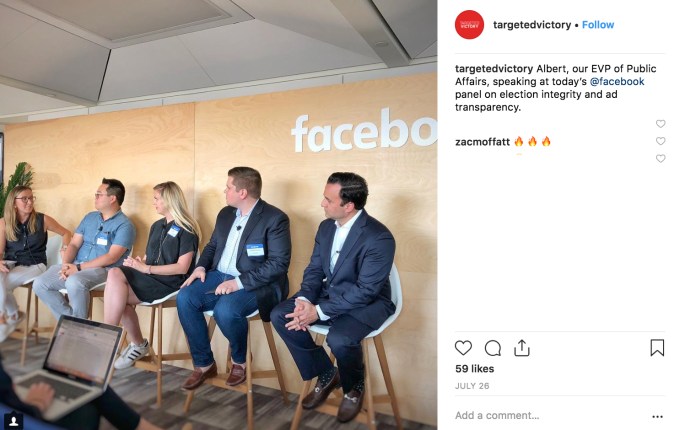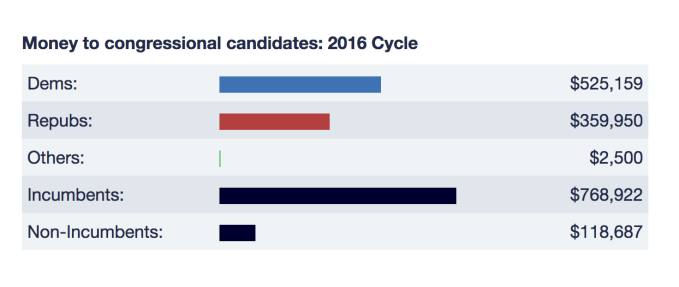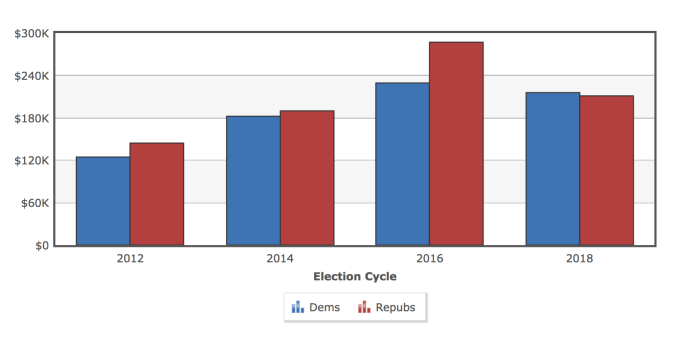A founder-investor panel on augmented reality (AR) technology here at TechCrunch Disrupt Berlin suggests growth hopes for the space have regrouped around enterprise use-cases, after the VR consumer hype cycle landed with yet another flop in the proverbial ‘trough of disillusionment’.
Matt Miesnieks, CEO of mobile AR startup 6d.ai, conceded the space has generally been on another downer but argued it’s coming out of its third hype cycle now with fresh b2b opportunities on the horizon.
6d.ai investor General Catalyst‘s Niko Bonatsos was also on stage, and both suggested the challenge for AR startups is figuring out how to build for enterprises so the b2b market can carry the mixed reality torch forward.
“From my point of view the fact that Apple, Google, Microsoft, have made such big commitments to the space is very reassuring over the long term,” said Miesnieks. “Similar to the smartphone industry ten years ago we’re just gradually seeing all the different pieces come together. And as those pieces mature we’ll eventually, over the next few years, see it sort of coalesce into an iPhone moment.”
“I’m still really positive,” he continued. “I don’t think anyone should be looking for some sort of big consumer hit product yet but in verticals in enterprise, and in some of the core tech enablers, some of the tool spaces, there’s really big opportunities there.”
Investors shot the arrow over the target where consumer VR/AR is concerned because they’d underestimated how challenging the content piece is, Bonatsos suggested.
“I think what we got wrong is probably the belief that we thought more indie developers would have come into the space and that by now we would probably have, I don’t know, another ten Pokémon-type consumer massive hit applications. This is not happening yet,” he said.
“I thought we’d have a few more games because games always lead the adoption to new technology platforms. But in the enterprise this is very, very exciting.”
“For sure also it’s clear that in order to have the iPhone moment we probably need to have much better hardware capabilities,” he added, suggesting everyone is looking to the likes of Apple to drive that forward in the future. On the plus side he said current sentiment is “much, much much better than what it was a year ago”.
Discussing potential b2b applications for AR tech one idea Miesnieks suggested is for transportation platforms that want to link a rider to the location of an on-demand and/or autonomous vehicle.
Another area of opportunity he sees is working with hardware companies — to add spacial awareness to devices such as smartphones and drones to expand their capabilities.
More generally they mentioned training for technical teams, field sales and collaborative use-cases as areas with strong potential.
“There are interesting applications in pharma, oil & gas where, with the aid of the technology, you can do very detailed stuff that you couldn’t do before because… you can follow everything on your screen and you can use your hands to do whatever it is you need to be doing,” said Bonatsos. “So that’s really, really exciting.
“These are some of the applications that I’ve seen. But it’s early days. I haven’t seen a lot of products in the space. It’s more like there’s one dev shop is working with the chief innovation officer of one specific company that is much more forward thinking and they want to come up with a really early demo.
“Now we’re seeing some early stage tech startups that are trying to attack these problems. The good news is that good dollars is being invested in trying to solve some of these problems — and whoever figures out how to get dollars from the… bigger companies, these are real enterprise businesses to be built. So I’m very excited about that.”
At the same time, the panel delved into some of the complexities and social challenges facing technologists as they try to integrate blended reality into, well, the real deal.
Including raising the spectre of Black Mirror style dystopia once smartphones can recognize and track moving objects in a scene — and 6d.ai’s tech shows that’s coming.
Miesnieks showed a brief video demo of 3D technology running live on a smartphone that’s able to identify cars and people moving through the scene in real time.
“Our team were able to solve this problem probably a year ahead of where the rest of the world is at. And it’s exciting. If we showed this to anyone who really knows 3D they’d literally jump out of the chair. But… it opens up all of these potentially unintended consequences,” he said.
“We’re wrestling with what might this be used for. Sure it’s going to make Pokémon game more fun. It could also let a blind person walk down the street and have awareness of cars and people and they may not need a cane or something.
“But it could let you like tap and literally have people be removed from your field of view and so you only see the type of people that you want to look at. Which can be dystopian.”
He pointed to issues being faced by the broader technology industry now, around social impacts and areas like privacy, adding: “We’re seeing some of the social impacts of how this stuff can go wrong, even if you assume good intentions.
“These sort of breakthroughs that we’re having are definitely causing us to be aware of the responsibility we have to think a bit more deeply about how this might be used for the things we didn’t expect.”
From the investor point of view Bonatsos said his thesis for enterprise AR has to be similarly sensitive to the world around the tech.
“It’s more about can we find the domain experts, people like Matt, that are going to do well by doing good. Because there are a tonne of different parameters to think about here and have the credibility in the market to make it happen,” he suggested, noting: “It‘s much more like traditional enterprise investing.”
“This is a great opportunity to use this new technology to do well by doing good,” Bonatsos continued. “So the responsibility is here from day one to think about privacy, to think about all the fake stuff that we could empower, what do we want to do, what do we want to limit? As well as, as we’re creating this massive, augmented reality, 3D version of the world — like who is going to own it, and share all this wealth? How do we make sure that there’s going to be a whole new ecosystem that everybody can take part of it. It’s very interesting stuff to think about.”
“Even if we do exactly what we think is right, and we assume that we have good intentions, it’s a big grey area in lots of ways and we’re going to make lots of mistakes,” conceded Miesnieks, after discussing some of the steps 6d.ai has taken to try to reduce privacy risks around its technology — such as local processing coupled with anonymizing/obfuscating any data that is taken off the phone.
“When [mistakes] happen — not if, when — all that we’re going to be able to rely on is our values as a company and the trust that we’ve built with the community by saying these are our values and then actually living up to them. So people can trust us to live up to those values. And that whole domain of startups figuring out values, communicating values and looking at this sort of abstract ‘soft’ layer — I think startups as an industry have done a really bad job of that.
“Even big companies. There’d only a handful that you could say… are pretty clear on their values. But for AR and this emerging tech domain it’s going to be, ultimately, the core that people trust us.”
Bonatsos also pointed to rising political risk as a major headwind for startups in this space — noting how China’s government has decided to regulate the gaming market because of social impacts.
“That’s unbelievable. This is where we’re heading with the technology world right now. Because we’ve truly made it. We’ve become mainstream. We’re the incumbents. Anything we build has huge, huge intended and unintended consequences,” he said.
“Having a government that regulates how many games that can be built or how many games can be released — like that’s incredible. No company had to think of that before as a risk. But when people are spending so many hours and so much money on the tech products they are using every day. This is the [inevitable] next step.”







